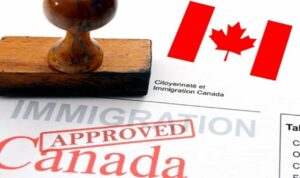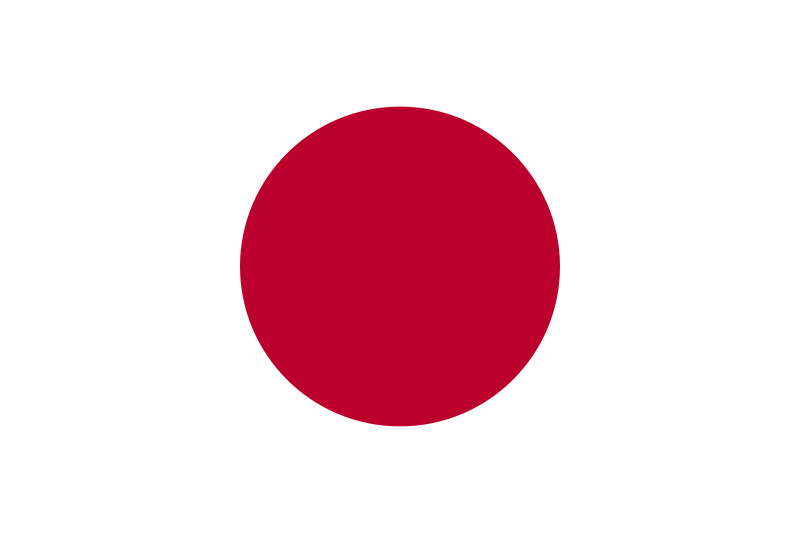Visa and Immigration in Canada for Japanese Citizens

Visa and Immigration in Canada for Japanese Citizens
Introduction
Canada and Japan share a long-standing relationship built on diplomacy, economic ties, and cultural exchange. Every year, thousands of Japanese citizens travel to Canada for education, work, tourism, or to build a new life. With its multicultural cities, stunning natural beauty, and world-class education and healthcare systems, Canada is an increasingly popular destination for Japanese nationals.
This article explores the various visa and immigration options available to Japanese citizens who wish to visit, study, work, or immigrate to Canada. Whether you’re a student, a skilled worker, or simply planning a short vacation, this guide will help you understand your options and prepare for a smooth experience.
1. Entry Requirements for Japanese Citizens
1.1 Visa-Exempt Status
Japanese citizens are visa-exempt when entering Canada for short-term stays (usually up to six months) for purposes such as tourism, business meetings, or visiting friends and family. However, even though no visa is required, Japanese travelers must obtain an Electronic Travel Authorization (eTA) before boarding a flight to Canada.
1.2 eTA (Electronic Travel Authorization): Visa and Immigration in Canada for Japanese Citizens
-
Cost: $7 CAD
-
Validity: 5 years or until passport expiration
-
Processing time: Usually within minutes, but can take several days
-
Where to apply: Official Canada eTA website
Who Needs an eTA?
Only air travelers need an eTA. If entering by land (e.g., from the U.S.) or sea, no eTA is required.
2. Studying in Canada: Visa and Immigration in Canada for Japanese Citizens
Canada is a top destination for Japanese students, offering internationally respected universities, language schools, and colleges. To study in Canada for more than six months, a study permit is required.
2.1 Study Permit Requirements: Visa and Immigration in Canada for Japanese Citizens
-
Proof of sufficient funds (at least $10,000 CAD/year, more if studying in certain provinces or bringing family)
-
Valid passport
-
Proof of clean criminal record (police clearance may be requested)
-
A medical exam for longer stays or if studying in healthcare-related fields
2.2 Language Programs
Many Japanese citizens come to Canada for ESL (English as a Second Language) or FSL (French as a Second Language) training. Short programs (under 6 months) may not require a study permit, but it is advisable to apply for one in case the program is extended.
2.3 Work Opportunities for Students
With a valid study permit, international students can:
-
Work full-time during scheduled breaks (e.g., summer holidays)
-
Apply for on-campus jobs without additional permits

3. Working in Canada: Visa and Immigration in Canada for Japanese Citizens
Canada offers a range of options for Japanese citizens to work temporarily or transition to permanent residence.
3.1 International Experience Canada (IEC) – Working Holiday Program
Canada and Japan have a bilateral agreement allowing Japanese citizens aged 18–30 to participate in the Working Holiday program under the IEC.
Key Features:
-
No job offer required
-
Ideal for travel combined with temporary work
-
Processing time: 4–8 weeks
Requirements: Visa and Immigration in Canada for Japanese Citizens
-
Japanese citizenship and valid passport
-
Proof of funds (~$2,500 CAD minimum)
-
Health insurance for the duration of stay
-
Clean criminal record
3.2 Employer-Specific Work Permits: Visa and Immigration in Canada for Japanese Citizens
Japanese professionals with a job offer from a Canadian employer may apply for an employer-specific work permit. Some positions may require a Labour Market Impact Assessment (LMIA), which proves that hiring a foreign worker won’t negatively affect Canadian workers.
3.3 Intra-Company Transfers
Japanese employees of multinational corporations may qualify for a work permit through intra-company transfers, especially under NAFTA’s successor, CUSMA, or under General Agreement on Trade in Services (GATS) provisions.
4. Permanent Immigration Pathways
Many Japanese citizens who study or work temporarily in Canada choose to transition to permanent residency (PR). Canada offers several immigration programs suitable for skilled professionals, students, business investors, and families.
4.1 Express Entry System
Key Programs:
-
Federal Skilled Worker Program (FSWP)
-
Canadian Experience Class (CEC)
-
Federal Skilled Trades Program (FSTP)
How It Works:Visa and Immigration in Canada for Japanese Citizens
-
Create an Express Entry profile and receive a Comprehensive Ranking System (CRS) score based on age, education, work experience, language ability, and other factors.
-
If your score meets or exceeds the draw threshold, you receive an Invitation to Apply (ITA) for permanent residence.
Language Requirements:
-
English or French test (IELTS or CELPIP for English)
-
Minimum CLB 7 for FSWP and CEC (higher scores improve CRS ranking)
4.2 Provincial Nominee Program (PNP)
Each province and territory in Canada (except Quebec) has its own immigration programs tailored to regional labor market needs. Japanese citizens with specific work skills or job offers may apply through a PNP stream.
Popular provinces for PNP immigration:
-
British Columbia
-
Ontario
-
Alberta
-
Saskatchewan
4.3 Canadian Experience Class (CEC): Visa and Immigration in Canada for Japanese Citizens
Ideal for Japanese nationals who:
-
Have at least one year of full-time skilled work experience in Canada
-
Meet language requirements
-
Want to apply under Express Entry for fast-track PR

4.4 Family Sponsorship: Visa and Immigration in Canada for Japanese Citizens
Canadian citizens and permanent residents can sponsor close family members, including spouses, partners, children, and parents.
If a Japanese citizen marries or lives in a common-law relationship with a Canadian, they may be eligible for spousal sponsorship, either inland (within Canada) or overseas.
5. Business and Investment Immigration
Japanese entrepreneurs or investors can explore pathways through:
-
Start-Up Visa Program – for innovative entrepreneurs with funding from a designated organization
-
Entrepreneur Streams under PNPs
-
Self-Employed Person Program – for those with cultural, athletic, or farming backgrounds
6. Visiting Canada as a Tourist
As noted earlier, Japanese citizens can stay in Canada up to six months for tourism with an eTA. However, if your stay is longer, or you plan to study or work, you must apply for the appropriate permit or visa.
6.1 Extending Your Stay: Visa and Immigration in Canada for Japanese Citizens
Visitors who wish to remain in Canada longer than the permitted six months can apply for a Visitor Record before their current status expires. This allows for an extended stay but does not permit work or study.
7. Pathway for Japanese Students to PR
Canada offers a smooth path from student to permanent resident, which is one of the reasons it's so popular among international students.
Typical Timeline:
-
Start studies with a valid study permit
-
Graduate from a post-secondary institution (college or university)
-
Apply for a Post-Graduation Work Permit (PGWP) – valid up to 3 years
-
Gain at least 1 year of Canadian work experience
-
Apply for PR through CEC under Express Entry
This route is favored for its flexibility and allows young Japanese citizens to build a life in Canada step-by-step.
8. Dual Citizenship Considerations
Japan does not allow dual citizenship for adults. If a Japanese citizen gains Canadian citizenship later, they may be required to renounce Japanese nationality. Children with dual citizenship must choose one nationality by the age of 22.
That said, permanent residency in Canada does not require renunciation of Japanese citizenship. Many Japanese immigrants choose to remain permanent residents indefinitely.
9. Tips for Japanese Applicants: Visa and Immigration in Canada for Japanese Citizens
-
Language Proficiency: Preparing for English tests (IELTS, CELPIP) early can improve immigration chances.
-
Proof of Funds: Have clear, documented evidence of financial capacity.
-
Check Government Portals: Use only official Canadian government sites to apply and check program updates.
-
Apply Early: Some streams have limited spots and operate on a first-come, first-served basis.
-
Consult a Regulated Immigration Consultant (RCIC): For complex applications, professional guidance can improve success rates.

10. Life in Canada for Japanese Citizens: Visa and Immigration in Canada for Japanese Citizens
Canada is known for its safety, tolerance, and diversity. Japanese citizens often find welcoming communities in major cities like:
-
Vancouver: Strong Japanese community, mild climate
-
Toronto: Cultural diversity, economic hub
-
Calgary: Affordable housing, booming economy
-
Montreal: Bilingual environment, arts and culture
Japanese grocery stores, restaurants, cultural events, and language groups help make Canada feel like a home away from home.
Conclusion
Canada offers a wide range of opportunities for Japanese citizens—from study and work to tourism and permanent immigration. Whether you’re planning a short visit or a long-term life change, understanding the visa options, legal requirements, and settlement pathways is key to success.
With its strong education system, open economy, and multicultural society, Canada continues to attract Japanese individuals seeking a new chapter abroad. Armed with the right knowledge and preparation, you can navigate your Canadian immigration journey with confidence.
In case, if you need help with Visa and Immigration in Canada for Japanese Citizens or other clients, please fill in application below or contact us directly.

